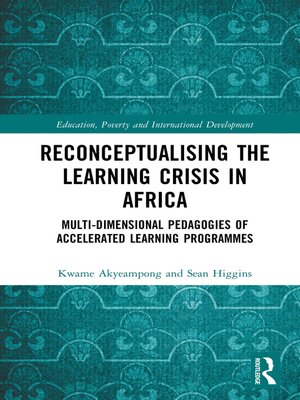Reconceptualising the Learning Crisis
ebook ∣ Multi-dimensional Pedagogies of African Accelerated Learning Programmes · Education, Poverty and International Development
By Kwame Akyeampong

Sign up to save your library
With an OverDrive account, you can save your favorite libraries for at-a-glance information about availability. Find out more about OverDrive accounts.
Find this title in Libby, the library reading app by OverDrive.



Search for a digital library with this title
Title found at these libraries:
| Library Name | Distance |
|---|---|
| Loading... |
This book offers a powerful, post‑colonial rejection of the so‑called global 'learning crisis' that offers deficit models of the experiences, knowledges, identities and relationships of African children, eroding their agency and dignity and undermining their learning opportunities and potential.
Three case studies of three accelerated learning programmes (ALPs) for out‑of‑school and lower-achieving children in Ethiopia, Liberia and Ghana illustrate multi‑dimensional models that re‑envision the purposes and pedagogies of basic education, reconnect with the lived experiences of African children and teachers and promote the role of communities in improving children's learning. Drawing on diverse social theory, the chapters reveal the use of children's funds of identity and knowledge, a material engagement with their natural environment, and highlight the transformative use of local languages. This book ultimately proves that a holistic approach to learning, based on the relational and community‑rooted African philosophy of Ubuntu, produces vital personal and academic benefits for African children.
This book will be of great interest to academics, researchers and postgraduate students in the fields of international and comparative education, postcolonial studies, African education, education policy and transformative pedagogy. It will also appeal to development strategists and NGOs working with the Education for All agenda.







